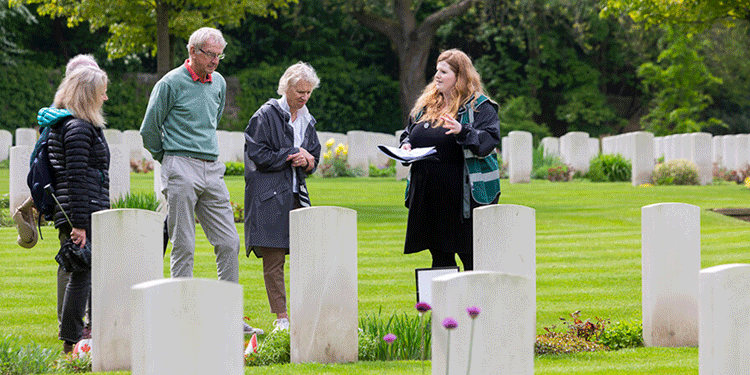
Charles Clark’s story is one of dedication, resilience and sacrifice, spanning his civilian life in Bethnal Green to his final resting place in Dunkirk Town Cemetery.
Born on 5th February 1881, Charles worked as a brewery labourer at Mann, Crossman & Paulin Ltd, based at the Albion Brewery in Whitechapel.
On 3rd April 1904, he married Elizabeth Young, who was working as a Coal Porter. They had two sons: Charles Jr. , born around 1905, and Henry, born in 1907.
In late summer 1916, at the age of 36, Charles enlisted in the 2/15th Battalion, London Regiment (Prince of Wales’s Own Civil Service Rifles), a Territorial Force unit. Initially assigned regimental number 7101, he was later renumbered to 533725 in January 1917, following the regiment's new six-figure numbering system, which allocated higher numbers to newer recruits.
His service took him to France in February 1917, where he was exposed to the gruelling realities of trench warfare.
In June 1917, he was redeployed to Salonika, a front often overshadowed by the Western Front but marked by its own challenges, including harsh terrain, extreme weather, and widespread disease.
After a tough year in Salonika, fighting not only the enemy but the environment itself, Charles returned to France in June 1918. The 2/15th Battalion contributed to the final Allied offensives, which were crucial in breaking through German defences and leading to the eventual Armistice on 11th November 1918.
Tragically, Charles Clark’s life was cut short on 16 February 1919, at the age of 39. He succumbed to Broncho-pneumonia contracted while on active service. This condition, exacerbated by the harsh conditions soldiers endured, highlights the often-overlooked toll of illness in wartime.
His death came after the Armistice, a reminder of the lingering cost of war even in its aftermath. Charles was buried in Dunkirk Town Cemetery, in Plot IV, Row E, Grave 47. His headstone bears the personal inscription chosen by his wife, Elizabeth: “Thy Will Be Done”
Charles’s family, including his wife Elizabeth and their two sons, Charles and Henry, bore the impact of his loss. Elizabeth received a weekly pension of 28/5d from 26 August 1919 to support her and the children in the absence of Charles.
Dunkirk Town Cemetery
Dunkirk Town Cemetery, where Charles rests, serves as a poignant testament to the global nature of the First World War. Initially established by the French and later used by Commonwealth forces, the cemetery became a key burial site for those who succumbed to wounds or illness at the nearby military hospitals.
Today, it contains 460 Commonwealth burials from the First World War and an additional 460 from the Second World War, alongside French and other nationalities’ graves.
The cemetery’s layout, characterised by uniform headstones and carefully tended grounds, reflects the Commonwealth War Graves Commission’s commitment to honouring the fallen with dignity.
Each grave tells a story, like Charles Clark’s, of lives interrupted and sacrifices made.
Commemoration at Albion Brewery Memorial
The brewery where Charles worked, Mann, Crossman & Paulin Ltd, erected a memorial to employees who died in both the First and Second World Wars. Charles's name is inscribed on this memorial, although there appears to be an error regarding his military unit. This memorial lists him as serving in the 2/5th London Regiment, but this would seem to be in error.
Following a comprehensive search of the CWGC database, there appears to be no record of any person named 'Charles Clark' who died while serving in the 2/5th London Regiment. One possible explanation is that this was an error upon the private memorial, and Charles Clark should have been listed as a member of the 2/15th Battalion, London Regiment. Despite this, the memorial remains an important tribute to colleagues, friends and family.
Charles Clark’s story, from his work as a brewery labourer at Mann, Crossman & Paulin Ltd in Whitechapel to his service and ultimate sacrifice, is emblematic of the countless untold stories of the First World War. His journey underscores the human cost of conflict and the enduring importance of remembrance.






